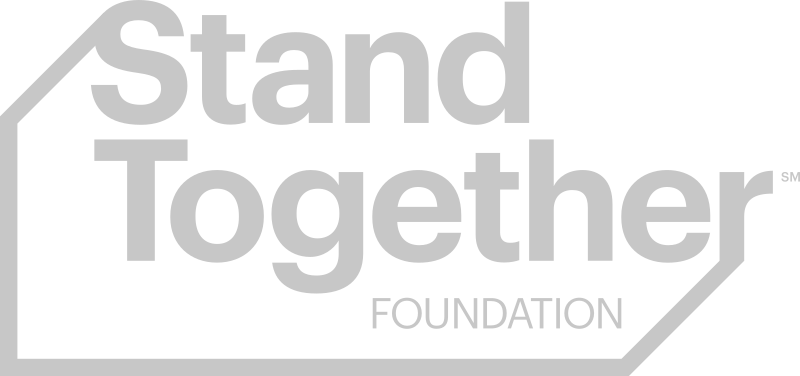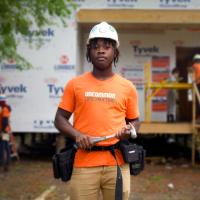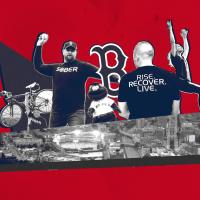In an impoverished community in South Dallas, urban farming is growing not only fresh food but new opportunities for residents. Sprouting unexpectedly from the middle of the Bonton neighborhood, Bonton Farms boasts more than 42 acres of land.
Founder Daron Babcock was drawn to this downtrodden community where he now oversees one of the largest urban farms in the United States. Walking its grounds, you’ll find a goat mansion, chicken palace, turkey village, and an organic garden.
The farm also houses a market, which doubles as a cafe and a place to purchase fresh produce. This couldn’t have been accomplished without residents in the community and support from Stand Together.
A Community in Need and a Man on a Mission
In Dallas, one of the wealthiest cities in the world, the Bonton community and 48% of its residents suffer daily from the effects of urban poverty. To name a few, Bonton residents have disproportionately high rates of incarceration, joblessness, disease, and a lack of transportation.
The rate of cardiovascular disease in Bonton is 54% higher than the rest of Dallas, and the rate of diabetes is 45% higher. Residents also suffer from a problem that’s surprisingly common in urban locations – a lack of access to fresh, healthy food that’s affordable.
Since businesses tend to open in places where there are plenty of people with money to spend, Bonton didn’t have a local source of healthy food. In fact, it takes a three-hour, round-trip bus ride just to reach the nearest grocery store.
After getting to know the people in this community, Daron Babcock moved into the neighborhood and made it his mission to come up with a solution. That’s when he started an urban farm in a vacant lot next to his house.
What is Urban Farming?
Urban farms are highly beneficial to cities and their residents. Any individual or organization that grows food or raises livestock in a city for purposes other than personal consumption can be considered an urban farmer.
Urban farming helps eliminate food deserts – areas where people don’t have affordable access to fresh, healthy foods. A great concentration of plants growing in a city also helps reduce carbon emissions. The green, unpaved space can even lower temperatures in cities and reduce flooding.
While urban farming benefits are plenty, Bonton Farms has taken the concept a step further by offering additional opportunities such as housing, urban farming jobs, nutrition programs, cooking classes, and more.
More Than Just Fresh Produce
About 45% of Dallas’s population lives in South Dallas, but only 5% of the Dallas’s jobs are in the southern portion of the city. Using its uniquely supportive model, Bonton Farms has been able to change the employment outlook for its beneficiaries.
Babcock initially devised the urban farm as a way to create jobs and fresh produce for the community, but it grew into so much more. Jobs and food serve only as the central provisions of a host of additional services designed to give community members a chance to overcome the symptoms of poverty and thrive.
The Market at Bonton Farms is an educational outpost where a variety of opportunities are offered that help enrich the community. They offer classes in general health and wellness, financial management, parenting, and more. Bonton Farms even assists residents with transportation and access to credit.
A Focus on Community is Essential
What Bonton Farms is doing is much bigger than just the Bonton community. Thousands of people visit the farm to volunteer and participate. Visitors shop in the market and sit down together for a meal in the cafe. Bonton Farms is a place where people gather. It’s a place where people start to see each other less as “us and them” and more as “we.”
People often ask the founder how they can recreate Bonton Farms’ success elsewhere, and his top piece of advice is to build relationships. The people closest to a problem are usually the best equipped to solve it, and Babcock says he couldn’t have figured out what Bonton needed most without getting to know the people of the community and their unique struggles.
The community of Bonton stands as a testament to the fact that all people can flourish when provided with the right environment and the necessary resources to tap into their gifts and talents. In Bonton, this was made possible through urban farming.
Babcock explained it best when he said, “Investing in the soil yields healthy plants; investing in the soul yields healthy people.”
For more interesting news about the people and ideas that are changing our world, subscribe to Freethink.
Stand Together helps social entrepreneurs supercharge their efforts by connecting them with passionate partners and the resources necessary to make a greater difference.
Through Stand Together’s philanthropic community, they’re tackling some of the nation’s biggest challenges so that every person has the opportunity to realize their full potential.
Learn more about getting support for your business, or become a partner today at StandTogether.org.



